|
Books Should Be Free Loyal Books Free Public Domain Audiobooks & eBook Downloads |
|
|
Books Should Be Free Loyal Books Free Public Domain Audiobooks & eBook Downloads |
|
Non-fiction |
|---|
|
Book type:
Sort by:
View by:
|
By: Charles Alexander Eastman (1858-1939) | |
|---|---|
 Indian Child Life
Indian Child Life
The author was raised as an American Indian and describes what it was like to be an Indian boy (the first 7 chapters) and an Indian Girl (the last 7 chapters). This is very different from the slanted way the white man tried to picture them as 'savages' and 'brutes.'Quote: Dear Children:—You will like to know that the man who wrote these true stories is himself one of the people he describes so pleasantly and so lovingly for you. He hopes that when you have finished this book, the Indians will seem to you very real and very friendly... | |
By: Charles Alexander Eastman (1858-1939) | |
|---|---|
 Indian To-day
Indian To-day
Based in part upon the author's own observations and personal knowledge, it was the aim of the book to set forth the status and outlook of the North American Indian. He addressed issues such as Indian schools, health, government policy and agencies, and citizenship in this book. In connection with his writings, Eastman was in steady demand as a lecturer and public speaker with the purpose of interpreting his race to the present age. | |
By: Jean-Henri Fabre (1823-1915) | |
|---|---|
 Life of the Fly, With Which are Interspersed Some Chapters of Autobiography
Life of the Fly, With Which are Interspersed Some Chapters of Autobiography
The title tells all, along with other observations on insect life from the famed accidental entomologist of 19th Century France.. | |
By: Gustave Le Bon (1841-1931) | |
|---|---|
 Crowd
Crowd
"Civilisations as yet have only been created and directed by a small intellectual aristocracy, never by crowds. Crowds are only powerful for destruction. Their rule is always tantamount to a barbarian phase. A civilisation involves fixed rules, discipline, a passing from the instinctive to the rational state, forethought for the future, an elevated degree of culture — all of them conditions that crowds, left to themselves, have invariably shown themselves incapable of realising. In consequence of the purely destructive nature of their power crowds act like those microbes which hasten the dissolution of enfeebled or dead bodies... | |
By: Maria Parloa (1843-1909) | |
|---|---|
 Chocolate and Cocoa Recipes and Home Made Candy Recipes
Chocolate and Cocoa Recipes and Home Made Candy Recipes
A selection of chocolate recipes which were produced for Walter Baker & Co, the oldest producer of chocolate in the United States. Advertisements used by Walter Baker & Co can be found in Section 7. They are read by: Cori Samuel, Peter Why, David Lawrence, BookAngel7, ashleighjane and Joanne Rochon. | |
 Miss Parloa's New Cook Book
Miss Parloa's New Cook Book
| |
By: Gertrude Burford Rawlings | |
|---|---|
 The Story of Books
The Story of Books
Rawlings follows the development of printing from the origins of writing to modern printing. Some of the earliest records are ancient Egyptian, Greek and Roman recordings on papyrus and wax tablets. However, Rawlings acknowledges the sparse nature of this first fragile evidence, and limits speculation.Later, libraries of religious books grew in Europe, where monks copied individual books in monasteries. The "block printing" technique began with illustrations carved in wood blocks, while the text needed to be written by hand... | |
By: Sarah Tyson Heston Rorer (1849-1937) | |
|---|---|
 Sandwiches
Sandwiches
| |
 Made-Over Dishes
Made-Over Dishes
| |
By: Edith Birkhead (1889-1951) | |
|---|---|
 Tale of Terror: A Study of the Gothic Romance
Tale of Terror: A Study of the Gothic Romance
A seminal essay on the development of horror as a genre, highly influential on later writers. | |
By: Peter Fisher (1782-1848) | |
|---|---|
 History of New Brunswick
History of New Brunswick
Originally published in 1825 under the title: Sketches of New Brunswick : containing an account of the first settlement of the province, with a brief description of the country, climate, productions, inhabitants, government, rivers, towns, settlements, public institutions, trade, revenue, population, &c., by an inhabitant of the province. The value of this history is in the fact that it was written when the Province was still in its infancy. Although there had been a few small settlements established in New Brunswick prior to 1783, the main influx of settlers were Loyalists who chose to remove to the area from the United States following the American Revolution. | |
By: George Washington Sears (1821-1890) | |
|---|---|
 Woodcraft
Woodcraft
| |
By: William Carew Hazlitt (1834-1913) | |
|---|---|
 Old Cookery Books and Ancient Cuisine
Old Cookery Books and Ancient Cuisine
| |
By: Andrew Carnegie (1835-1919) | |
|---|---|
 James Watt
James Watt
This biography of the inventor James Watt covers his early years, successes and failures, and legacy. | |
 Autobiography of Andrew Carnegie
Autobiography of Andrew Carnegie
This autobiography of Andrew Carnegie is a very well written and interesting history of one of the most wealthy men in the United states. He was born in Scotland in 1835 and emigrated to America in 1848. Among his many accomplishments and philanthropic works, he was an author, having written, besides this autobiography, Triumphant Democracy (1886; rev. ed. 1893), The Gospel of Wealth, a collection of essays (1900), The Empire of Business (1902), and Problems of To-day (1908)]. Although this autobiography was written in 1919, it was published posthumously in 1920. | |
By: Julian Stafford Corbett (1854-1922) | |
|---|---|
 Fighting Instructions, 1530-1816 Publications Of The Navy Records Society Vol. XXIX.
Fighting Instructions, 1530-1816 Publications Of The Navy Records Society Vol. XXIX.
| |
By: Samuel J. Record | |
|---|---|
 The Mechanical Properties of Wood Including a Discussion of the Factors Affecting the Mechanical Properties, and Methods of Timber Testing
The Mechanical Properties of Wood Including a Discussion of the Factors Affecting the Mechanical Properties, and Methods of Timber Testing
| |
By: Daniel Carter Beard (1850-1941) | |
|---|---|
 Shelters, Shacks and Shanties
Shelters, Shacks and Shanties
| |
By: Arthur Cheney Train (1875-1945) | |
|---|---|
 Courts and Criminals
Courts and Criminals
| |
By: Candace Wheeler (1827-1923) | |
|---|---|
 How to make rugs
How to make rugs
| |
By: Henry Edward Krehbiel (1854-1923) | |
|---|---|
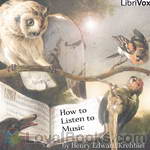 How to Listen to Music
How to Listen to Music
This book is "not written for professional musicians, but for untaught lovers of the art". It gives broad instruction on composers, styles, instruments, venues - and when to believe the critics. | |
By: Margaret Sanger (1879-1966) | |
|---|---|
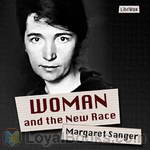 Woman and the New Race
Woman and the New Race
Margaret Sanger was an American sex educator and nurse who became one of the leading birth control activists of her time, having at one point, even served jail time for importing birth control pills, then illegal, into the United States. Woman and the New Race is her treatise on how the control of population size would not only free women from the bondage of forced motherhood, but would elevate all of society. The original fight for birth control was closely tied to the labor movement as well as the Eugenics movement, and her book provides fascinating insight to a mostly-forgotten turbulent battle recently fought in American history. | |
By: Frank Henderson | |
|---|---|
 Six Years in the Prisons of England
Six Years in the Prisons of England
A Merchant talks about daily life inside prisons of England, describes routines and how prisoners are treated. He notes stories of how fellow prisoners came to be in prison, and his ideas about the penal system, its downfalls and ways to improve it. The reader can see similarities to the problems we still have in regarding "criminals" today. (Introduction by Elaine Webb) | |
By: W. H. (William Herbert) Simmons | |
|---|---|
 The Handbook of Soap Manufacture
The Handbook of Soap Manufacture
| |
By: Amelia Simmons (c. 1700s-1800s) | |
|---|---|
 American Cookery
American Cookery
American Cookery, by Amelia Simmons, was the first known cookbook written by an American, published in 1796. Until this time, the cookbooks printed and used in what became the United States were British cookbooks, so the importance of this book is obvious to American culinary history, and more generally, to the history of America. The full title of this book was: American Cookery, or the art of dressing viands, fish, poultry, and vegetables, and the best modes of making pastes, puffs, pies, tarts, puddings, custards, and preserves, and all kinds of cakes, from the imperial plum to plain cake: Adapted to this country, and all grades of life. (Description from Wikipedia) | |
By: S. Baring-Gould (1834-1924) | |
|---|---|
 Curious Myths of the Middle Ages
Curious Myths of the Middle Ages
This volume is an example of Sabine Baring-Gould's extensive research into the middle ages. This volume of 12 curiosities was one of Baring-Gould's most successful publications. | |
By: Eliza Leslie (1787-1858) | |
|---|---|
 Directions for Cookery, in its Various Branches
Directions for Cookery, in its Various Branches
| |
 Seventy-Five Receipts for Pastry, Cakes and Sweetmeats, by Miss Leslie
Seventy-Five Receipts for Pastry, Cakes and Sweetmeats, by Miss Leslie
| |
By: William Wood (1864-1947) | |
|---|---|
 Chronicles of Canada Volume 31 - All Afloat: A Chronicle of Craft and Waterways
Chronicles of Canada Volume 31 - All Afloat: A Chronicle of Craft and Waterways
No exhaustive Canadian 'water history' can possibly be attempted here. That would require a series of its own. But at least a first attempt will be made to give some general idea of what such a history would contain in fuller detail: of the kayaks and canoes the Eskimos and Indians used before the white man came, and use today; of the small craft moved by oar and sail that slowly displaced those moved only by the paddle; of the sailing vessels proper, and how they plied along Canadian waterways,... | |
By: William Charles Henry Wood (1864-1947) | |
|---|---|
 Draft of a Plan for Beginning Animal Sanctuaries in Labrador
Draft of a Plan for Beginning Animal Sanctuaries in Labrador
| |
By: Milo M. Hastings (1884-1957) | |
|---|---|
 The Dollar Hen
The Dollar Hen
| |
By: James Anthony Froude (1818-1894) | |
|---|---|
 Short Studies on Great Subjects
Short Studies on Great Subjects
| |
By: John Fiske (1842-1901) | |
|---|---|
 The Unseen World and Other Essays
The Unseen World and Other Essays
| |
By: Joshua Rose | |
|---|---|
 Mechanical Drawing Self-Taught Comprising instructions in the selection and preparation of drawing instruments
Mechanical Drawing Self-Taught Comprising instructions in the selection and preparation of drawing instruments
| |
By: Edward V. Lucas (1868-1938) | |
|---|---|
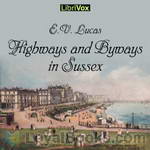 Highways and Byways in Sussex
Highways and Byways in Sussex
A very personal and opinionated wander through the Sussex of around 1900, illustrated with anecdotes, literary and poetic quotations, gravestone epitaphs and a gentle sense of humour. The author colours the countryside with his nostalgia for times past and regret for the encroaching future, his resentment of churches with locked doors, and his love of deer parks, ruined castles and the silent hills.(I must add my apologies for my attempts at the Sussex dialect in the chapter on that subject.)[This book is of Reading Grade of 9... | |
By: John Victor Lacroix (1882-) | |
|---|---|
 Lameness of the Horse Veterinary Practitioners' Series, No. 1
Lameness of the Horse Veterinary Practitioners' Series, No. 1
| |
By: Thomas J. Murrey | |
|---|---|
 Fifty Soups
Fifty Soups
| |
 Fifty Salads
Fifty Salads
| |
 Breakfast Dainties
Breakfast Dainties
| |
By: Samuel Pegge (1704-1796) | |
|---|---|
 The Forme of Cury A Roll of Ancient English Cookery Compiled, about A.D. 1390
The Forme of Cury A Roll of Ancient English Cookery Compiled, about A.D. 1390
| |
By: William A. Alcott (1798-1859) | |
|---|---|
 Vegetable Diet: As Sanctioned by Medical Men
Vegetable Diet: As Sanctioned by Medical Men
| |
By: Queen of Great Britain Victoria (1819-1901) | |
|---|---|
 The Letters of Queen Victoria : A Selection from Her Majesty's Correspondence between the Years 1837 and 1861 Volume 1, 1837-1843
The Letters of Queen Victoria : A Selection from Her Majesty's Correspondence between the Years 1837 and 1861 Volume 1, 1837-1843
| |
By: Friedrich Wieck (1785-1873) | |
|---|---|
 Piano and Song
Piano and Song
This book talks about teaching, learning and performing on the piano in a delightful style, alternating between conversation and instruction. As he was the father of Clara Schumann and Robert Schumann's teacher, need I say more? | |
By: Harrison Weir (1824-1906) | |
|---|---|
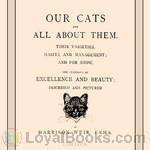 Our Cats and All About Them
Our Cats and All About Them
The Englishman Harrison Weir organized the first cat show in England in 1871. In 1887 he founded the National Cat Club and was its first President and Show Manager until his resignation in 1890.Our Cats and all about them is concerned with cats and all about them. It describes numerous breeds of cats and what to look for in a cat show champion, and deals with the general management and common diseases of cats, as well as how to raise healthy kittens. But there is also a hodge podge of cat related stories, games, nursery rhymes, superstitions, as well as a list of cat lovers and a chapter of "The Cat in Shakespeare". | |
By: Agnes Repplier (1855-1950) | |
|---|---|
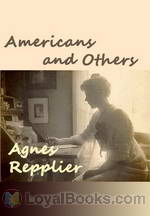 Americans and Others
Americans and Others
A collection of sometimes biting, always clever commentaries on some of life's foibles -- as apt today as when Ms. Repplier wrote them in 1912. Though less know to modern readers, Repplier was in her prime ranked among the likes of Willa Cather. Note: Section 13 contains the word niggards. I put it in print here so that it will not be mistaken for a racial epithet when heard. (written by Mary Schneider) | |
By: Imbert de Saint-Amand (1834-1900) | |
|---|---|
 Marie Antoinette and the Downfall of Royalty
Marie Antoinette and the Downfall of Royalty
Paris in 1792 is no longer what it was in 1789. In 1789, the old French society was still brilliant. The past endured beside the present. Neither names nor escutcheons, neither liveries nor places at court, had been suppressed. The aristocracy and the Revolution lived face to face. In 1792, the scene has changed."France was now on the verge of the Reign of Terror (la Terreur), the violent years following the Revolution, and this book chronicles the terrible period of French history which culminated in the proclamation: "Royalty is abolished in France... | |
By: Ike Matthews | |
|---|---|
 Full Revelations of a Professional Rat-catcher
Full Revelations of a Professional Rat-catcher
Full Revelations of a Professional Rat-Catcher, after 25 Years' ExperienceBy Ike Matthews. INTRODUCTION. In placing before my readers in the following pages the results of my twenty-five years' experience of Rat-catching, Ferreting, etc., I may say that I have always done my best to accomplish every task that I have undertaken, and I have in consequence received excellent testimonials from many corporations, railway companies, and merchants. I have not only made it my study to discover the different... | |
By: Talbot Hughes (1869-1942) | |
|---|---|
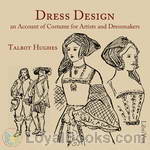 Dress Design: An Account of Costume for Artists and Dressmakers
Dress Design: An Account of Costume for Artists and Dressmakers
Explanations of Western European trends in men and women's fashion from prehistoric times to the Victorian Era. | |
By: Charles Shattuck Hill (1868-) | |
|---|---|
 Concrete Construction Methods and Costs
Concrete Construction Methods and Costs
| |
By: St. George William Joseph Stock (1850-?) | |
|---|---|
 Guide to Stoicism
Guide to Stoicism
This book is a primer on the philosophy of stoicism, resurrected from its origins in Greek and Roman philosophy. The original philosophy was based on a reasoning process which it was assumed would lead to a virtuous life. Zeno, the founder of stoicism, did not begin expounding on its teachings until he was in his forties. He believed that the purpose of life was "to live consistently." Cleanthes, his disciple, added "with nature," so that the purpose of life became "to live consistently with nature." | |
By: John Marshall (1755-1835) | |
|---|---|
 Opinion of the Supreme Court of the United States, at January Term, 1832
Opinion of the Supreme Court of the United States, at January Term, 1832
| |
By: Samuel White Baker (1821-1893) | |
|---|---|
 Wild Beasts and Their Ways, Reminiscences of Europe, Asia, Africa and America — Volume 1
Wild Beasts and Their Ways, Reminiscences of Europe, Asia, Africa and America — Volume 1
| |
By: A. W. Duncan | |
|---|---|
 The Chemistry of Food and Nutrition
The Chemistry of Food and Nutrition
| |
By: Kate M. Foley | |
|---|---|
 Five Lectures on Blindness
Five Lectures on Blindness
The [five] lectures were written primarily to be delivered at the summer sessions of the University of California, at Berkeley and at Los Angeles, in the summer of 1918. . . they are the outgrowth of almost a quarter of a century spent in work for the blind, and were written from the standpoint of a blind person, seeking to better the condition of the blind. They were addressed not to the blind, but to the seeing public, for the benefit that will accrue to the blind from a better understanding of their problems. (Extract from the Forward by Milton J. Ferguson) | |